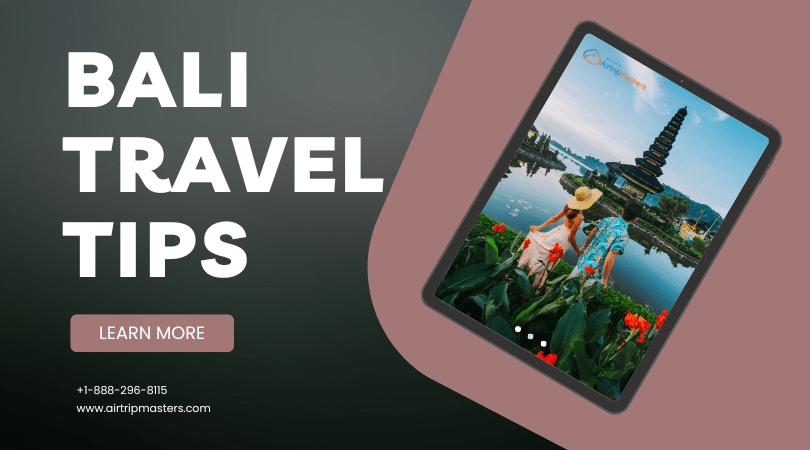
Bali Travel Tips: What You Should Know Before You Go
Bali, often called the “Island of the Gods,” is a captivating destination known for its stunning beaches, rich culture, and lush landscapes. Whether you’re a seasoned traveler or a first-time visitor, you must be well-prepared before embarking on your Bali adventure. To ensure a smooth and enjoyable trip, here are some valuable Bali travel tips to consider.
Visa and Passport Requirements
Before you set foot on Balinese soil, it’s crucial to check the visa and passport requirements for your specific nationality. Many countries, such as the United States and most European nations, allow visa-free entry for up to 30 days.
Best Time to Visit Bali
Bali’s climate can significantly affect your travel experience, so choosing the right time to visit is crucial. The island has two distinct seasons: the dry season (April to September) and the wet season (October to March). The dry season is the ideal time to explore Bali, with lower humidity and plenty of sunshine. The wet season brings heavy rainfall, which may limit outdoor activities. Remember that Bali’s peak tourist season is during July and August, so if you prefer a quieter experience, plan your trip during the shoulder seasons.
Packing Essentials
When packing for your Bali trip, consider the island’s tropical climate. Light, breathable clothing, swimwear, and sun protection are essential. Remember to pack a reusable water bottle, as Bali’s tap water is unsafe to drink, and plastic waste is a growing concern.
Health Precautions
It’s advisable to consult your healthcare provider or a travel clinic before your trip to Bali. They can guide you on vaccinations and medications you may need, such as hepatitis A and B, typhoid, and antimalarial drugs. Additionally, purchase comprehensive travel insurance to cover unexpected medical expenses and emergencies during your stay.
Money Matters
The local currency in Bali is the Indonesian Rupiah (IDR). While credit cards are widely accepted in tourist areas, it’s essential to carry some cash for small purchases and in more remote regions where card payments may not be available. ATMs are readily available, but be cautious in isolated locations due to potential security concerns.
Cultural Respect
Bali is deeply rooted in its culture and traditions, so it’s essential to be respectful and considerate of local customs. When visiting temples or sacred sites, wear modest clothing that covers your shoulders and knees.
Transportation in Bali
Getting around Bali can be an adventure in itself. While taxis and ride-sharing apps like Grab are convenient in tourist areas, consider using a local driver for day trips and exploring less-traveled regions. Renting a scooter is a popular choice for the more adventurous traveler, but ensure you have the necessary license and wear a helmet. Traffic in Bali can be chaotic, so exercise caution when driving
Safety and Security
Bali is generally a safe destination for travelers, but like any place, it’s essential to remain vigilant. Petty theft, such as pickpocketing, can occur in crowded areas, so keep an eye on your belongings. Also, be cautious when swimming at the beaches, as strong currents can pose a danger, especially during the wet season. Language and Communication
The official language of Indonesia is Bahasa Indonesia, but in Bali, many people working in the tourism industry speak English. Learning basic Indonesian phrases, such as greetings and thank you, can enhance your experience and show respect for the local culture.
Conclusion
Bali is a captivating destination with a diverse range of experiences to offer. By following these Bali travel tips, you’ll be well-prepared to make the most of your trip, ensuring you can fully immerse yourself in the island’s beauty, culture, and warmth. Remember to stay informed about travel advisories and prioritize your safety and respect for the local culture during your visit to the “Island of the Gods.”
Search
Categories
Airline Reviews Airport Review Best Places to visit in indiaBusiness class tickets Canada To India Flight Airport Review Airport Review
Recent Post
Advantages of Flight CancellationsWhy are airline tickets so expensive” The Ultimate Travel Guidelines Best Ways to Get Cheap Flight Tickets San Francisco To Ahmedabad Flights



 1-888-296-8115
1-888-296-8115 1-855-478-4115
1-855-478-4115



